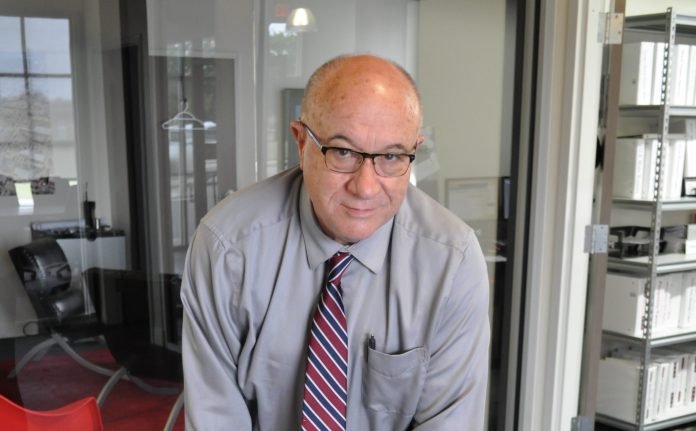
by Bobby Anderson, Staff Writer
Most people after 40 years in the same field think about winding things down, maybe taking a break and looking to relax.
For clinical social worker Ron Marlett, he’s running for public office.
“When you take into account our state legislature has made funding decisions that put over 250 of the 318 nursing homes in this state at risk of bankruptcy, when you look at cutting or denying Medicaid to working poor and you look at cutting food stamps to children it just can’t continue,” Marlett said of why he decided to run.
June 28 will be the democratic primary that Marlett is building towards.
“I want to increase funding for public education. I want to restore funding to long term care and make sure our seniors don’t have to choose between food and medicine,” Marlett said. “That’s a choice they should not have to be making. Along the way I’d like to see us make some major reforms in the criminal justice system. Prisons do not treat drug addiction and do not treat mental health issues.”
At this point, Marlett sees prison as the funnel for people with addiction and mental issues. He blames deals made with the private prison entities for contributing to the problem of overcrowding.
With Oklahoma currently facing a $1.3 billion shortfall, Marlett has been amazed at the bills showing up on the house and senate floor.
“We’ve got schools closing and the biggest concern they have is bathroom monitors?” Marlett said. “It’s the most misaligned set of priorities I’ve ever seen at the state capital. It’s been corporations first and then people if there are crumbs left.”
Marlett ran previously in 2008 against the polarizing Rep. Sally Kern. He gained 42 percent of the vote.
Kern terms out after this session.
“We have to look at at the proper role of government and the proper role is to help us do as a collective what we can’t do as individuals,” Marlett said. “I can’t build a road. That’s why we have governments, to put the infrastructure in place. It’s not the role of the government to monitor bathrooms. It is not the role of the government to insert itself into people’s bedrooms or in their private lives.”
This May Marlett celebrated 40 years in social work. All but two years have been spent in the field of mental health with the past 15 in geriatric care.
He works for Community Pathways Unlimited, a private mental health agency established in 1995 to serve the behavioral health needs of the citizens of Oklahoma.
He routinely visits four nursing homes in the metro area to provide counseling to seniors and disabled people.
Born in Binger, Marlett is a fourth generation Oklahoman, who is running for office because he wants to see an improvement in our political culture. He has seen the state he loves torn apart by people who would rather divide us into warring factions, instead of uniting us in the common struggle of ensuring a better day in Oklahoma.
“I’ve always worked hoping to make a difference in people’s lives,” Marlett said. “I love what I do. I think you’re really blessed when you can work at what you love.”
He grew up in the Union City Public school system and recognizes the value of a good education. After graduating from Union City High School, he attended El Reno Jr. College, and Oklahoma City University, where he earned a degree in Sociology, and the University of Oklahoma, where he earned a Master’s Degree in Social Work.
Having worked for four decades as a clinical social worker, mostly in the field of mental health, he understands the need to properly fund critical services in order to address our state’s most pressing issues.
He believes Oklahomans deserve a state government that functions well and works for the common interests of all.
He has been married to Liz Waring Marlett for 32 years. They have a daughter Chelsea, a son-in-law Chris, and a granddaughter named Cailey.
“The crisis we’re facing is not created by the oil and gas bust it was created by the decision to lower income taxes and give hundreds of millions (away),” Marlett said. “Out of $1.3 billion dollars in our deficit nearly three-quarters of a billion goes to corporate welfare.”
“If you want to solve the problem, end that. Right now we’re in a crisis.”













